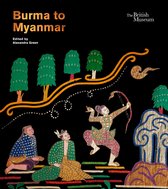Burma in Turmoil
- en
- Couverture rigide
- 9781604563115
- 27 mai 2008
- 105 pages
Résumé
By the end of September 2007, the Burmese military regime had suppressed with force anti-regime protests that began in late August, escalated in mid- September, and were led by Buddhist monks and pro-democracy activists. This drew new protests from the United States over the regime's abusive human rights record. According to human rights reports by the U.S. State Department and private organisations, Burma's poor record worsened in 2004, 2005, and 2006. These reports have laid out a familiar pattern of government and military abuses of civilians. As in the past, U.S. diplomatic initiatives in September 2007 did not prevent the regime's crackdown. China blocked a U.S.-European Union proposal to have the United Nations Security Council consider imposing sanctions on Burma. However, Burmese military leader Than Shwe proposed to a United Nations envoy that he would meet with opposition leader Aung Sann Suu Kyi if she would cease encouraging confrontation with the government and foreign economic sanctions. The SPDC appears unaffected by sanctions imposed by the United States and other Western nations. Western sanctions are uneven with U.S. sanctions being the heaviest. Burma has been able to expand exports of a variety of commodities, including growing earnings from natural gas production. China and India have signed deals with the SPDC for substantial purchases of natural gas. Burma also reportedly earns between $1 billion and $2 billion annually from exports of illegal drugs, heroin and methamphetamines. Most of these earnings go to drug traffickers connected to the Wa and Shan ethnic groups; but Burmese military officials have means to gain a substantial share of these earnings. Burma's fellow members in the Association of Southeast Asian Nations (ASEAN) have grown more critical of the SPDC, but they continue to oppose sanctions. Chinese diplomatic support of the SPDC and military and economic aid is very important: $2 billion in military aid since the early 1990s, $200 million annually in economic aid, substantial foreign investment including new investment in natural gas, and a huge influx of Chinese migrants into Burma, mainly traders. China's role is a prime justification for India's constructive engagement policy toward Burma. Burma has re-established diplomatic relations with North Korea amidst reports of growing military co-operation between them. This book presents a background report on Burma and incisive reports on the country and its internal strive and international interactions.
Spécifications produit
Nous n'avons trouvé aucune spécification pour votre recherche '{SEARCH}'.
Contenu
- Langue
- en
- Binding
- Couverture rigide
- Date de sortie initiale
- 27 mai 2008
- Nombre de pages
- 105
- Illustrations
- Non
Personnes impliquées
- Rédacteur en chef
- Alden T Roycee
- Editeur principal
- Nova Science Publishers
Autres spécifications
- Hauteur de l'emballage
- 155 mm
- Largeur d'emballage
- 230 mm
- Largeur du produit
- 230 mm
- Livre d‘étude
- Oui
- Longueur d'emballage
- 155 mm
- Longueur du produit
- 155 mm
- Poids de l'emballage
- 348 g
- Police de caractères extra large
- Non
- Édition
- édition illustrée
EAN
- EAN
- 9781604563115
Vous trouverez cet article :
- Catégories
- Pays
- Myanmar
- Disponibilité
- Disponible à l'adresse suivante
- Langue
- Anglais
- Livre, ebook ou livre audio ?
- Livre
Choisissez la version souhaitée
Binding
: Couverture rigide
Informations sur les prix et commande
Le prix de ce produit est de 98 euros.
2 - 3 semaines
Vendu par bol
- Livraison comprise avec bol
- Retrait possible dans un point-relais bol
- 30 jours de réflexion et retour gratuit
- Service client 24h/24
Signaler cet article
Vous souhaitez signaler un contenu illégal à propos cet article:
- Je souhaite faire un signalement en tant que client.
- Je veux faire un signalement en tant qu'autorité ou personne de confiance.
- Je veux faire un signalement en tant que propriétaire de partenaire
- Je veux faire un signalement en tant que propriétaire de marque
Vous n'êtes pas un client, une autorité, personne de confiance, propriétaire de marque ou un partenaire ? Dans ce cas, utilisez le bouton ci-dessous pour effectuer un signalement.





